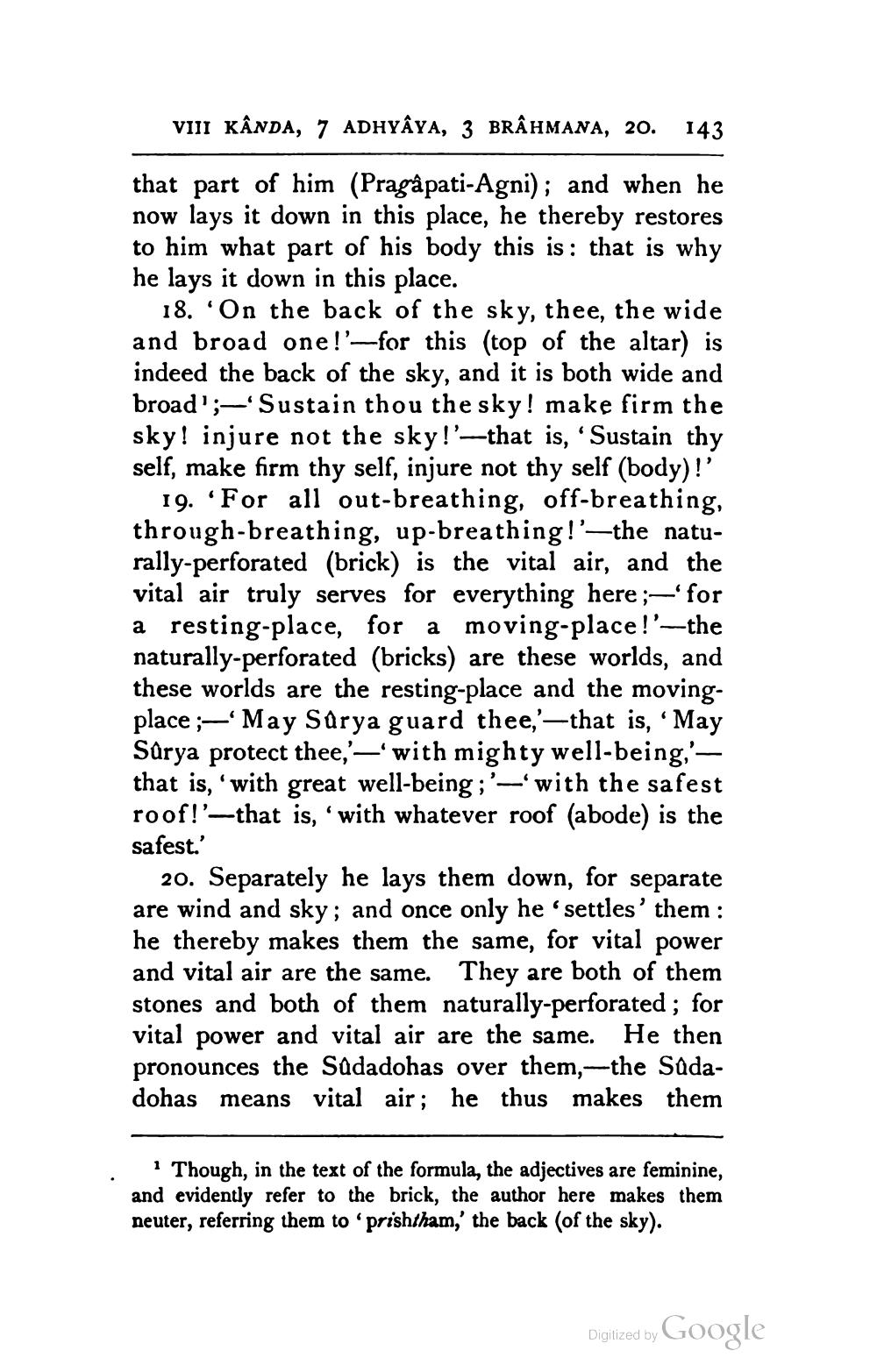________________
VIII KÂNDA, 7 ADHYÂYA, 3 BRÂHMANA, 20. 143
that part of him (Pragâ pati-Agni); and when he now lays it down in this place, he thereby restores to him what part of his body this is : that is why he lays it down in this place.
18. 'On the back of the sky, thee, the wide and broad one!'-for this (top of the altar) is indeed the back of the sky, and it is both wide and broad';— Sustain thou the sky! make firm the sky! injure not the sky!'--that is, 'Sustain thy self, make firm thy self, injure not thy self (body)!'
19. For all out-breathing, off-breathing, through-breathing, up-breathing!'—the naturally-perforated (brick) is the vital air, and the vital air truly serves for everything here ;—'for a resting-place, for a moving-place!'-the naturally-perforated (bricks) are these worlds, and these worlds are the resting-place and the movingplace ;-May Surya guard thee,'—that is, ' May Surya protect thee,'—'with mighty well-being,'— that is, 'with great well-being; '-'with the safest roof!'--that is, with whatever roof (abode) is the safest.
20. Separately he lays them down, for separate are wind and sky; and once only he settles' them: he thereby makes them the same, for vital power and vital air are the same. They are both of them stones and both of them naturally-perforated; for vital power and vital air are the same. He then pronounces the Sadadohas over them,—the Sadadohas means vital air; he thus makes them
Though, in the text of the formula, the adjectives are feminine, and evidently refer to the brick, the author here makes them neuter, referring them to 'prishtham,' the back (of the sky).
Digitized by Google




